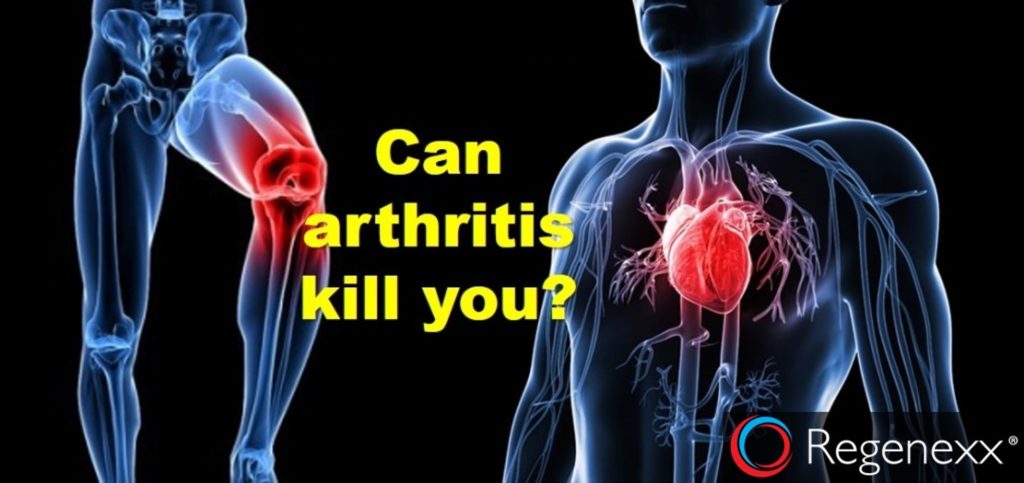Arthritis and Heart Disease: Can Achy Knees Kill You?
Are arthritis and heart disease related? You might be surprised to learn that there are a few studies that show that they are, with the most recent being published just last week. If you have arthritis should you be concerned and why do the two seem to go hand in hand?
One of the biggest causes of arthritis in modern industrialized society is metabolic syndrome. This is what happens to many Americans as they hit middle age because they exercise too little, eat too much starchy and sugar laden stuff, and gain weight. Blood pressure begins to creep upwards and triglycerides in the blood skyrocket. All of this increases heart disease risk and all of it also increases the risk for arthritis. While the weight gain puts more pressure on the joints, more important is the fact that metabolic syndrome causes low level, whole body inflammation and other chemical changes that act toward arthritis like throwing gasoline on a fire.
The study looked at a huge population of patients across 15 studies, some 32 million! About a third of the patients with arthritis had heart disease and arthritis patients were three times as likely to have heart failure as the patients without arthritis! Interestingly, there was no difference between the two groups for heart attack or stroke risks and the arthritis patients were less likely to suffer from a TIA (mini-stroke that resolves).
So why is this happening? First, patients with arthritis are less active and these days, many patients with arthritis have metabolic syndrome, which is also a risk for heart failure. In addition, the same type of low level inflammation caused by metabolic syndrome can also fry the heart over time.
The upshot? If your joints ache, you mat want to use this as a motivating factor to help you change your lifestyle. Cutting out the carbs and getting regular exercise now will likely help your arthritis, but also may save your life one day!

If you have questions or comments about this blog post, please email us at [email protected]
NOTE: This blog post provides general information to help the reader better understand regenerative medicine, musculoskeletal health, and related subjects. All content provided in this blog, website, or any linked materials, including text, graphics, images, patient profiles, outcomes, and information, are not intended and should not be considered or used as a substitute for medical advice, diagnosis, or treatment. Please always consult with a professional and certified healthcare provider to discuss if a treatment is right for you.

